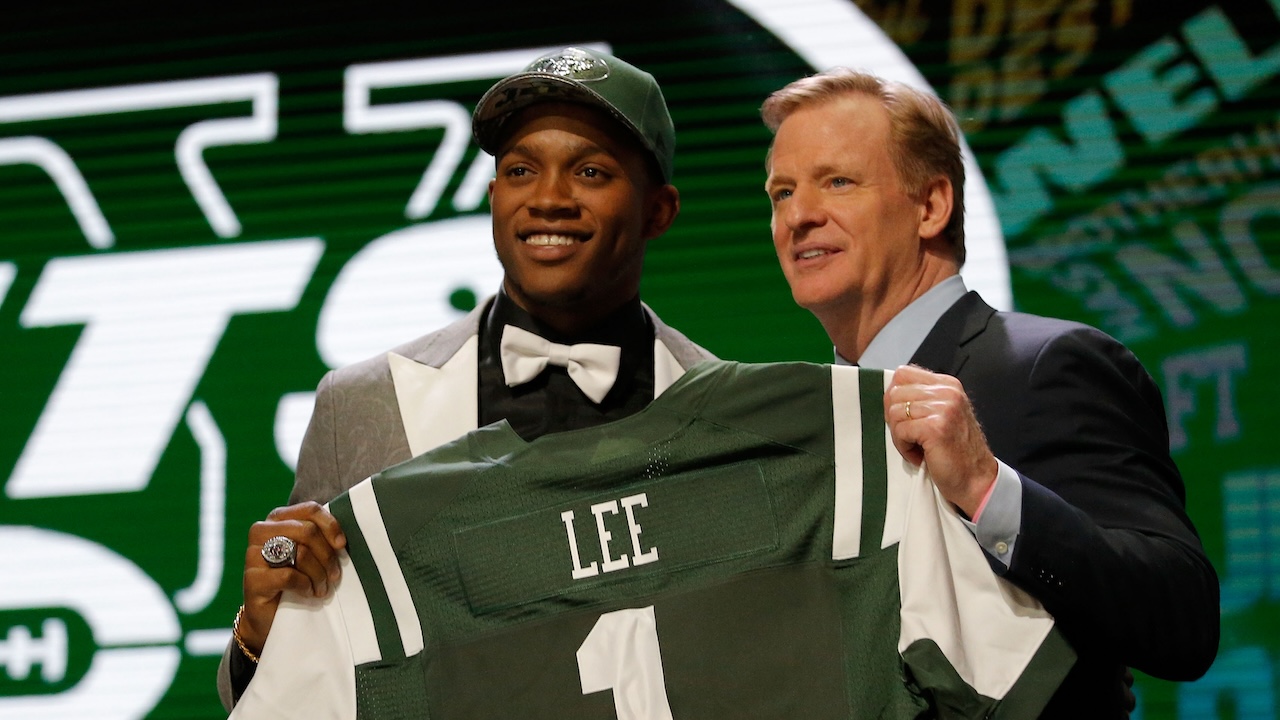The Quiet Pivot: Black Men, Money, And The Search For ‘Enough’


They asked me, of all people, to write a column about finances. Me, a guy who is in the throes of the most uncomfortable personal and professional reorientation of my life and my pockets. Me, a man who has literally said, “Jesus saves, but ya boy spends,” to justify all manner of egregious acts of personal economic recklessness. Me, the one who, until recently, operated with the spending discipline of an insecure Emirati owner of an English top-tier soccer team.
That’s who they pitched the personal finance piece to. And NewsOne has invested what equates to several thousand Naira in this column, so I guess I owe it to them.
But maybe I’m the guy to do it. Maybe now’s the right time. See, there comes a moment, somewhere in the haze of the second career pivot and realizing that you’re five years away from your firstborn going to college, when you’re forced to sit still long enough to ask yourself: Am I doing this right?
Not just life. Money.
And for a lot of middle-aged Black men, the honest answer is: I don’t know.
We don’t talk about money. Not really. We talk around money. We talk about the car. We talk about the new gig. We talk about what we’re building, what we’re fitna to do next. But the nuts and bolts, the shame, the confusion, the doubt — that stays locked up, even among our closest friends.
We want to project “success,” so we pantomime the presentation of having it all under control.
We keep quiet and keep moving. Earning. Spending. Attempting to manage money in the most responsible-ish way we know how. Trying to be the one who “gets it right.” Not realizing that, in all this, all we’re chasing is enough.
If you’re a Black man in your 40s or 50s with a decent income, there’s a good chance you’re probably one of the first in your family to ever have this much money to manage. Sure, you might’ve grown up Carl Winslow middle class, but now you’re Andre Johnson middle class. Maybe not quite George Jefferson, but definitely not James Evans. You’ve got a mortgage. Maybe a 401(k) or one of them Roth IRAs. Your tax return has gotten complicated because you actually have assets.
But with that milestone comes pressure. Internal and external.
You want to do right by the people who raised you. You want to be the foundation your kids stand on, not the cautionary tale they whisper about. And somewhere in the mix of pride and fear, you fall into the trap of putting on the performance. You proudly show the parts that look successful and quietly wrestle with what feels like a Potemkin village of Supreme crew necks and credit card receipts.
Because nobody really showed us how to be with money. We either watched our parents silently stretch dollars like pizza dough or saw them make it happen seemingly out of thin air on Christmas morning, or those nights we got to eat at Olive Garden. There were no sit-downs about wealth-building, no spreadsheets, no lessons on compound interest.
So we’ve learned on the fly. In silence. Alone.
Making good money feels like it should be the finish line. But what happens when the direct deposit hits, and the anxiety stays?
We spend. Sometimes, on things we don’t even want, just to feel rewarded for surviving. We upgrade our lives so that we can see the success we’re supposed to feel. We buy the car, the kicks, the watch. Not because we’re frivolous, but because we’re tactile people. We want to hold the proof. We want to feel wealthy in our hands.

But deep down, we’re often unsure of whether we’re doing it right. Of how long it will last. Of what the real goal even is.
We confuse “comfortable” with “complete.” And because not all of us grew up seeing someone who had “enough,” we don’t know what it looks like now that we might actually be close to it.
Money is just one of the last taboos. Especially for Black men.
We don’t want to admit we’re unsure. We don’t want to reveal that we’re still learning. We certainly don’t want to say that we’ve made mistakes.
So we say nothing.
We don’t talk about the credit card debt we picked up trying to look like we had it together.
We don’t talk about the fear of not having enough savings when the job went away.
We don’t talk about how child support, divorce, or family obligations impact our ability to build or sustain.
We don’t talk about how weird it feels to be okay, and still feel anxious.
Instead, we stunt. We show success. We celebrate each other’s wins and stay quiet about our own worries. Because we’ve been conditioned to figure it out on our own.
But the truth is, we’re all figuring it out in real time. And most of us are just now getting the vocabulary.
It’s time to talk to our people about money…
Here’s the thing: we need to have this conversation. Not on some “Black men need therapy” TED Talk wave. Just… like real discussion. With our boys. When we’re in the basement watching the game, standing around the grill at the cookout, playing 2K on Xbox Live at 11 p.m. after the kids are asleep.
Because the silence is killing us softly and slowly.
You don’t have to break down your net worth. Just start with something honest. Something simple.

“Yo, do y’all ever feel like you’re making good money but still feel like you need a drink while you’re paying bills?”
“Anybody else feel like they should know more about life insurance?”
“I just started budgeting for real last month. Is X% of my salary the right number to try to save?”
Those questions aren’t admissions of failure. They’re invitations.
And you’d be surprised how many of your boys exhale when you go first. Because they’re sitting on the same questions. We just need permission to have the conversation without shame.
Start small. Recommend a financial podcast. Share a book. Or talk through a recent financial win and a recent lesson. Normalize being a work in progress.
And don’t assume your friends know everything just because they look like they do. Sometimes the freshest dressed is the most financially stressed. We’re all trying. Most of us are just in our own orbit.
But, there’s a shift that happens as you get older. The cars get more functional. The shoes get more practical. The financial flex becomes smaller and quieter, if it exists at all.
One day, you find yourself behind the wheel of a Kia Telluride wearing Kirkland jeans and some Hokas, and that’s just life.
You start looking at your money differently. Less as a means of enhancing visibility, and more as a shield against instability. You stop chasing your childhood wants and start investing in what grown men actually need.
And when that question lands, it can feel unfamiliar; is this enough?
Because “enough” was never defined for us.
“Enough” was never a number. It was a feeling, one most of us never fully grasped growing up. Our parents did what they could, but they weren’t living in “enough.” They were surviving in their own ways.
So we overcorrect. We go hard. We collect the things we covered in our youth. We chase stuff. And then, one day, we reach a point where the chasing gets old.
That’s when the pivot begins.

When there’s a balance between what you’ve aspired to, what you have, and what you really need now.
Real wealth isn’t abundance, it’s security. It’s the ability to breathe easily. To not flinch when your daughter has to take a test prep class that costs $600. Or when you’re at the orthodontist with a kid with four broken brackets. To not have to pretend everything is fine when it isn’t.
It’s picking your kid up from school in the middle of the day without asking permission to go get tacos. It’s turning down a toxic job because your mortgage is already paid. It’s being able to say yes or no based on the opportunity, not your obligations.
And that kind of wealth doesn’t always come with commas. Most of the time, it arrives with a quiet confidence.
You don’t need to win the lottery. You just need to know what your version of “enough” looks like and give yourself permission to stop and smell the flowers when you get there.
We have to remind ourselves: it’s okay not to know. It’s okay to ask questions. It’s okay to be new at this.
We’re managing financial tools that generations before us never had access to. IRAs, investment accounts, trusts, equity. It’s not that we’re behind, it’s that we’re pioneering. We’re the first generation to be fully integrated into the American financial system as whole Black people. And firsts don’t have guides. They make them.
So it’s okay to call that financial advisor, even if you’re embarrassed. It’s okay to text your homeboy to ask if you can talk to his accountant. It’s okay to say, “I actually don’t know what I’m doing with this money, but I need to learn.”
There’s no shame in asking. The shame is in pretending until it’s too late.
Because, remember, the goal isn’t to get rich. It’s to get free.
Free from old consumer debt. Free from generational cycles. Free from the need to always look like we’ve got it figured out.
We may not have grown up with money, but we have the chance to grow into something better: enough.
That’s the real pivot. Not just making more but needing less. And saying, “This is mine. I built this. I understand this. And I don’t need to prove it to anybody.”
Maybe that’s why they asked me to do this. Because I’m in this exact place right now. Because I see my successes, but don’t always see myself as successful. Because I’m letting go of my life of acquisition and embracing my life of enough.
We’re in this new season together, gents. Let’s not let our pride continue to impede our prosperity.
Corey Richardson is originally from Newport News, Va., and currently lives in Chicago, Ill. Ad guy by trade, Dad guy in life, and grilled meat enthusiast, Corey spends his time crafting words, cheering on beleaguered Washington DC sports franchises, and yelling obscenities at himself on golf courses. As the founder of The Instigation Department, you can follow him on Substack to keep up with his work.
SEE ALSO:
You Deserve: A Black Man’s Guide To The Soft Life
Malcolm-Jamal Warner And Black Gen X Reckoning With Mortality
What's Your Reaction?
 Like
0
Like
0
 Dislike
0
Dislike
0
 Love
0
Love
0
 Funny
0
Funny
0
 Angry
0
Angry
0
 Sad
0
Sad
0
 Wow
0
Wow
0































